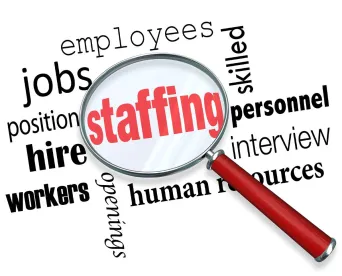In a case with monumental implications for the temporary staffing industry in the State of New Jersey, a group of industry trade associations and advocacy groups representing New Jersey temporary staffing agencies have sued the State over its recently enacted Temporary Laborers’ Bill of Rights.
In their twenty-five page complaint filed in New Jersey federal court on May 5, 2023, the New Jersey Staffing Alliance, New Jersey Business and Industry Association, and American Staffing Association seek to have the highly controversial law declared unconstitutional and to prevent the State and its agencies from implementing or enforcing it.
The bill, which was signed into law by New Jersey Governor Phil Murphy on February 6, 2023, as previously described here, provides robust protections to temporary workers in the State while heavily burdensome obligations and requirements that challengers contend are “egregious” and in numerous respects “vague and indecipherable.” With most of the bill’s substantive requirements set to go into effect on August 5, 2023 (and some provisions having already become effective as of May 7, 2023), many temporary staffing firms and the third-party clients they service alike have been scrambling to register with the New Jersey Department of Labor and Workforce Development (as required under the law), negotiate new contractual arrangements and servicing agreements with third-party clients, and timely and effectively implement the assortment of changes required to come into compliance. Temporary staffing firms and other impacted businesses cannot afford to take the possibility of enforcement under the new law lightly, as the statute has sharp teeth. The rights and protections afforded to temporary workers under the bill are accompanied by an arsenal of remedies, and violators run the risk of steep penalties.
The pending federal action challenging the bill echoes the sentiment felt by the temporary staffing agencies in the State that it most directly impacts. The lawsuit contends the new law is unconstitutionally vague and, “if allowed to be implemented and enforced, will lead to insurmountable problems, resulting in paralysis within the temporary staffing industry.” In their complaint, plaintiffs claim “[t]he meaning of this Legislation has proven difficult, if not impossible, to discern and, as members have indicated, would be extraordinarily burdensome, if not impossible to implement.” They point to “significant and oppressive” record keeping requirements, record producing requirements, pay requirements (particularly including, but not limited to, the requirement that temporary staffing employees be paid the same average pay and benefits or monetary equivalent of similar situated employees of the third-party clients), and placement fee limitations “that will force financial and administrative unconstitutional burdens on every staffing agency in New Jersey.”
A hearing has been set for June 13, 2023, before U.S. District Judge Christine P. O’Hearn, on the plaintiffs’ request for a temporary restraining order and preliminary injunction against implementation and enforcement of the law. If the plaintiffs’ request is granted, it will prevent the law from going into effect, at least temporarily, with the ultimate goal being a permanent injunction and judgment declaring the bill unconstitutional.
The district court’s ruling will have significant implications for New Jersey staffing agencies and employers that utilize or place temporary workers. Unless and until the court enters an order preventing the State from moving forward with its implementation and enforcement of the law, however, temporary staffing firms and businesses utilizing temporary workers in the State should continue to take the necessary and appropriate steps to develop and implement a plan to ensure they are in compliance or will be able to come into compliance by August 5, 2023, when most of changes under the new law are set to go into effect. Temporary staffing firms can ill-afford to wait for a decision from the federal court before taking those steps, as registration and certification alone can be a lengthy process, and the other newly imposed requirements are tedious, demanding, and logistically complex.



 />i
/>i


